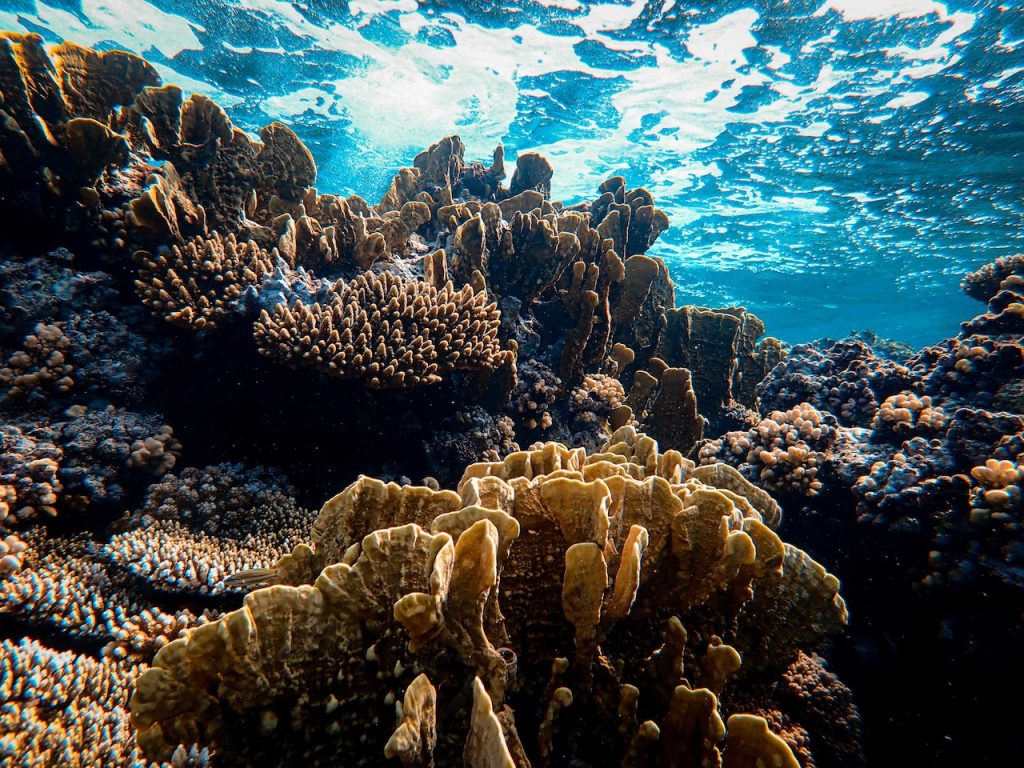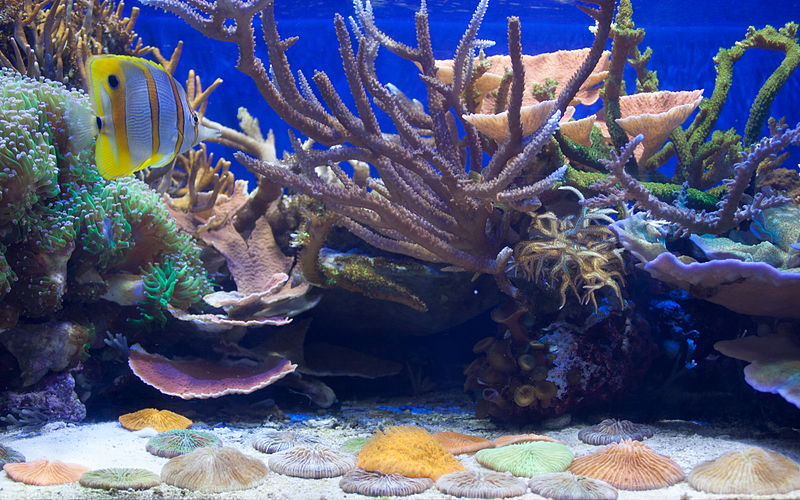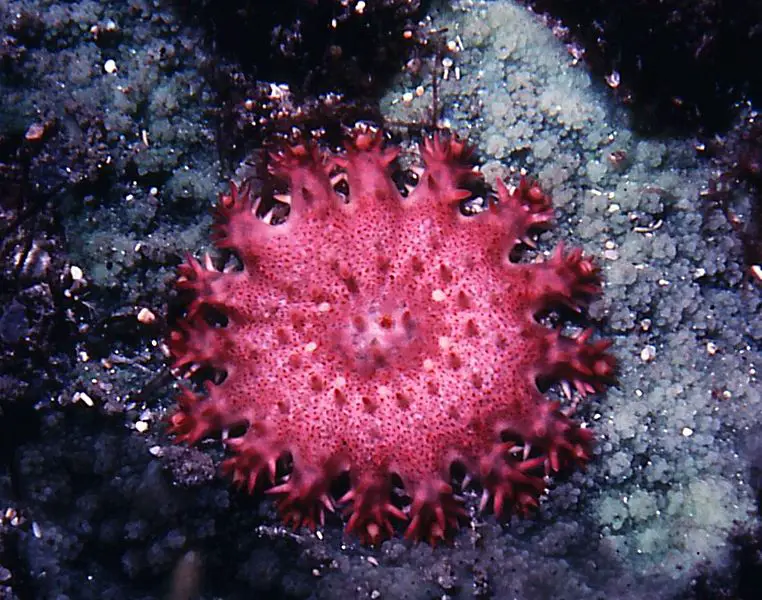Introduction
Coral reefs are complex things that few people really understand, and if you have ever heard that they produce oxygen, you might be puzzled. After all, corals are animals, and most animals use oxygen and produce CO2. How do corals differ?
Amazingly, coral reefs produce an enormous amount of the world’s oxygen, and they are often referred to as the ocean’s rainforests. They produce as much as 70 or even 80 percent of the world’s oxygen, and they are absolutely essential to both the survival of the oceans and the survival of the planet as a whole.
In this article, we’re going to explore what coral reefs need, how they produce oxygen, and why they are so important.
Do Corals Need Sunlight?
Most coral reefs do need sunlight, although there are some deep water corals that are far less dependent on sunlight than their shallow relatives. Many coral reefs grow as close to the surface of the ocean as they can, stretching up toward the light.
They require unpolluted, clear waters so that the sunlight can reach them. Corals do not grow in clouded, murky waters, and most kinds of coral don’t thrive when they are kept far away from the sun.
The coral polyps contain algae, and they have a symbiotic relationship with these algae. Like other forms of plant life, algae must have sunlight in order to photosynthesize, and that means that the corals themselves must be close to the sun.
It is important to recognize that some corals don’t need sunlight, but for the purposes of this article, we will mostly be looking at the kinds that do.
Do Corals Need Oxygen?
Corals need oxygen, yes. Other animals and organisms that make up the reefs are also highly dependent on oxygen in many cases, and the deoxygenation of the ocean is currently thought to be one of the biggest threats that the reefs face.
Although corals produce oxygen themselves, they still require it, and if they don’t have enough, there is a risk that they will start to release the algae that they depend on, and begin to die. Corals in this situation lose their color and gradually starve. Because they also produce the oxygen, the more this happens, the worse the situation gets.
How Much Oxygen Do Corals Produce?
Estimates vary between 50 and 80 percent of all the Earth’s oxygen, although this depends on whether you count the corals and the organisms they support, or just the corals. Regardless, there is no doubt that corals are critical in the face of keeping our world oxygenated.
Corals take up a tiny percentage of the world’s surface, and yet they produce at least half of the oxygen we need. The faster the coral reefs are decimated, the faster we lose our critical sources of oxygen.
How Do Coral Reefs Release Oxygen?
The corals themselves are not responsible for producing oxygen, but they provide a habitat for the zooxanthellae algae, and this produces the oxygen and releases it into the local atmosphere.
The corals give the algae a safe place, tucked in the skeletal structures away from predators. They lift the algae close to the surface, near the sunlight, and provide them with CO2 that the algae need to photosynthesize effectively.
In return, the algae provide the coral with food, creating a mutually beneficial relationship that adds massive quantities of oxygen to the Earth’s atmosphere.
Does Coral Convert CO2 Into Oxygen?
Again, the corals themselves do not directly provide the conversion. It is done in conjunction with the algae. In the same way that animals breathe in oxygen and out CO2 and plants breathe in CO2 and out oxygen, corals give their algae CO2 and the algae produce oxygen.
Effectively, therefore, corals do convert CO2 into oxygen, although this is simplifying the complex relationship that the two organisms share.
Do Corals Photosynthesize?
The corals do not photosynthesize. They are animals, and have no more capacity to produce energy from the sun than any other animal. What they do instead is provide the zooxanthellae algae with a suitable position to grow, and these photosynthesize.
However, the corals do directly benefit from the energy that the algae produce from the sun, because the algae share many of their products with the coral. Without their algae, most corals starve, even though they are able to take food in for themselves by hunting during the hours of darkness.
If corals are deprived of sunlight, they are very likely to die because their algae cannot photosynthesize. It is therefore critical for corals to grow in clear, sunny waters, as close to the surface as possible.
Remember that not all corals are dependent on the sun, and some grow in deep waters – but on the whole, this relationship is necessary for the survival of these animals.
Do Coral Reefs Produce More Oxygen Than Trees?
It is thought that coral reefs produce more oxygen than trees, yes, although this depends on how you measure it. Currently, scientists estimate that 50 to 80 percent of the world’s oxygen is produced by coral reefs, and that does mean that they are producing more oxygen than every tropical rainforest on the planet.
This is not to say that the conservation of the rainforests is unimportant in terms of keeping our atmosphere balanced and oxygenated, but it is critical not to underestimate the importance of the reefs.
Without sufficient oxygen, dead zones occur in the ocean, and almost nothing can survive in these zones. They can occur for a wide variety of reasons, including the death of algae on a mass scale, and further research is needed to fully understand them.
However, it is clear that humans must mitigate their impact on the reefs for the sake of the planet as a whole.
Conclusion
Corals themselves do not produce oxygen, but they provide a critical habitat for the algae that does. Without coral reefs, we could lose as much as half of the oxygen on this planet, and this is a vicious cycle that could easily spin out of control.



